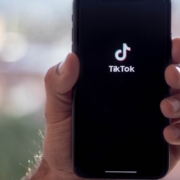Dyslexia Myths
Dyslexia Myths
Dyslexia Myths
There are several myths associated with dyslexia, many of which have fortunately been clarified and better understood as a result of years of research on the manifestation and characteristics of the disorder. It is important to understand the myths surrounding dyslexia in order to eliminate stereotypes and stigma that is placed on individuals with dyslexia.
Myth #1: Letter reversals.
Somehow the myth of mixing up the letters in a word (also known as letter mirroring) got attached to dyslexia (e.g., spelling the word “jumpeb” as “jumdep”). This is a definite myth because individuals with dyslexia do not necessarily reverse letters, or at least this is not a symptom of dyslexia and instead could be a visual processing issue.
Myth #2: Children with dyslexia are really good at math.
Not so fast. The assumption that because a child has difficulty with reading means that they must be “math minded” is a myth. A child with dyslexia may very well be good at math, but dyslexia can also cause issues related to sequencing, causing the child difficulty with completing math that involves steps, and the child can also struggle with math language, which is often necessary to solve math problems.
Myth #3: More boys have dyslexia than girls.
There are equal numbers of boys and girls with dyslexia and it is a myth that it is a male-dominant disorder. This myth is important to debunk because it can prevent girls with dyslexia from being identified or it can mean that teachers/academic staff will assume that boys have more difficulty with reading. The notion that girls are “better at reading and writing” and boys are “better at math and science” is a culturally conceived (and mythical) belief. There are no differences between the neurological functioning or learning abilities between boys and girls that will create a greater (or lesser) likelihood of developing dyslexia.
The Pathways team of professionals has helped thousands of people with Dyslexia. We are Dedicated to effective and compassionate care for individuals with neurological challenges.
The post Dyslexia Myths appeared first on Pathways Neuropsychology Associates.
Source: Pathways Neuropsychology
Dyslexia Myths











Leave a Reply
Want to join the discussion?Feel free to contribute!